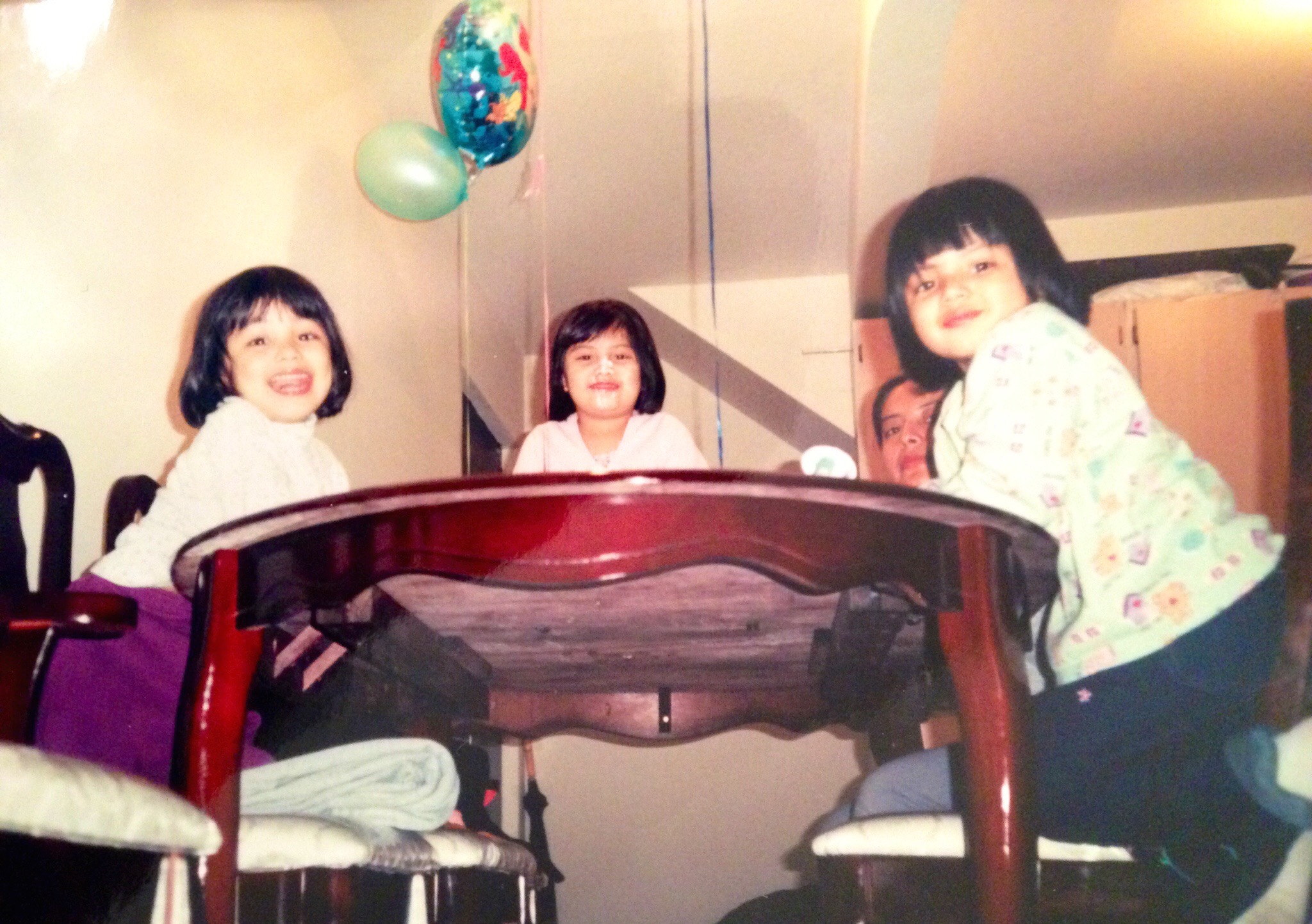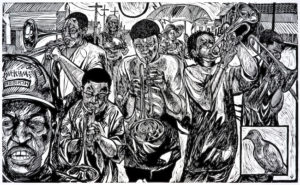“I am a Southern black worker, committed to building stank-ass art rooted in honesty, will, and imagination.”- Kiese Laymon
I grew up in a small Brooklyn apartment, right in what felt like the center of the bright but turbulent city of New York with my two sisters, Gabriela and Elvira, and my Mama, Laura. Most days— whenever my sisters and I weren’t in school— were spent at my Grandma’s who fed us a strict diet of huevos en salsa verde, handmade tortillas, and an abundant amount of cariño, while my Mama—who had given birth to my oldest sister at the ripe age of only twenty-two— fervently folded clothes at the downstairs laundromat where she’d work from 6AM till about 9PM, six to seven days a week, to provide for my two mischievous sisters and I. From flooding our tiny upstairs apartment with water after watching The Little Mermaid to completely covering the walls with paint and markers in an effort to make the apartment look like a jungle after watching Tarzan, my Mama would still, in some mysterious way, somehow gather up the energy to wake my sisters and I up every morning, 7AM sharp.
Regardless of the clutter my sisters and I would manage to create the night before, my Mama would sit us down, comb our long, dark brown hair, fix us up with some badass braids, gel back our baby hairs and clip back any remaining strands of hair that might have slipped from her delicate yet robust hands with these ravishing, vibrant flower hair clips that would glisten when the light would catch a glimpse of the tiny rhinestone arranged right at the center of each one. And just in case you were wondering, my Mama would get the majority of our hair accessories from a local beauty supply vendor and I still reminisce over our Sunday afternoons after church mass where she’d converse and negotiate back and forth with the all too familiar lady vendor looking for a better deal. Perhaps it was my Mama’s big, stern, intense brown eyes or her kind and confident demeanor that she would proudly stride, but she would often get her way. Afterwards, she’d pack us our breakfast, which was usually a cup of the Kellogg’s Raisin Bran cereal— the kind every kid dreaded, or at least I did— and as crafty and brilliant as my Mama was and still is, she’d place the cereal drenched in milk in a small plastic bag so we could eat it as we made our way to school. She was the closest thing I ever got to magic, and up to this day, I am convinced that if magic were a person, it would be my Mama. I see it in her dark eyes, in her soft smile, in her fleshy, warm, olive hued skin, in her adamant faith, in the way she carries herself and in the way that she raised my sisters and I to love ourselves and our roots.

(Cindy Castillo left, Gabriela Castillo middle, Elvira Castillo far right)
Despite my deep admiration for my Mama, I never felt or saw her in any of the literature texts I’d be required to read in school. It was not until I discovered black southern writer, Kiese Laymon, that I finally felt as though the woman that I had so passionately admired and aspired to resonate for the majority of my life was finally being represented. I found her essence and her ability to endure and persevere adversity through Laymon’s writing. His eloquent prose and his artistic craft offered a voice to those who felt like they had never been spoken to in novels and I immediately knew that I would have to dedicate at least one of my blog posts to the artist and writer that transformed my belief that any ‘serious’ and ‘meaningful’ pieces of literature were strictly reserved for those that Laymon best describes as “the kind that sat with its legs crossed, reading the New York Times.”
Continue reading “A New Kind of Stank, My Own Kinda Stank ft. a Lil Bit of Magic”


